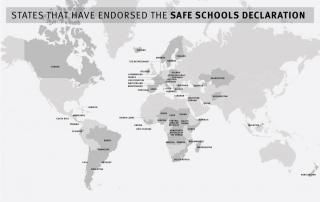Online Course Helps Aid Workers Help Women and Girls
From UNFPA UNITED NATIONS, New York – An online course for humanitarians is raising new awareness about women’s needs and vulnerabilities in emergency-affected communities around the world. “It acted as an eye opener, and it made me realize that gender-based violence can happen to anybody,” said Rebecca Oketch of Fortress of Hope, a girls’ rights









